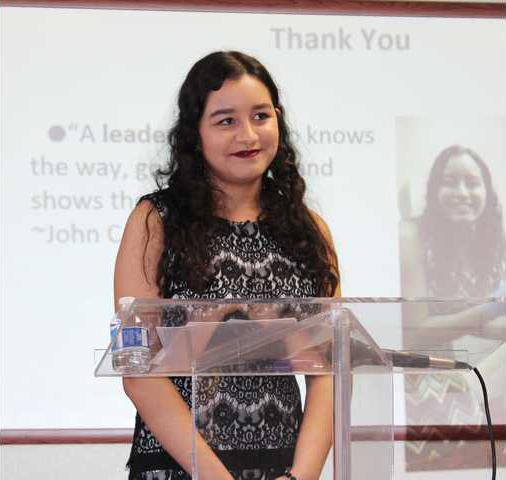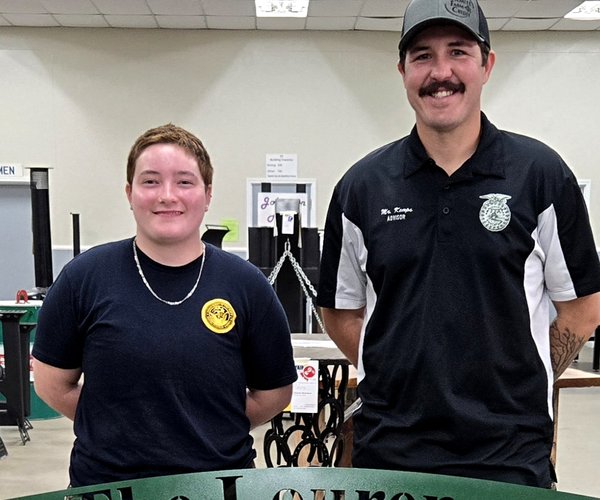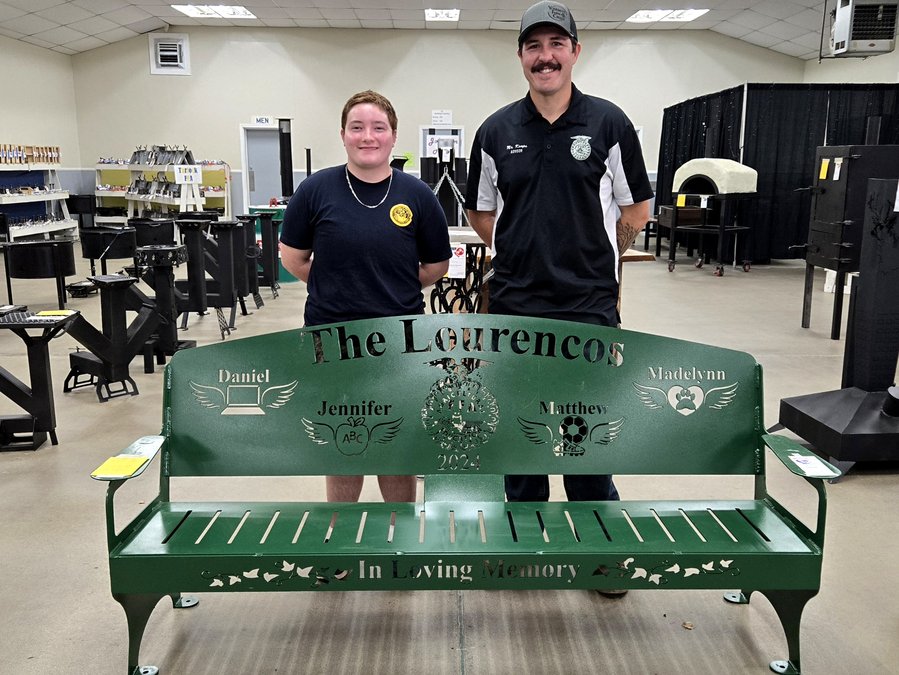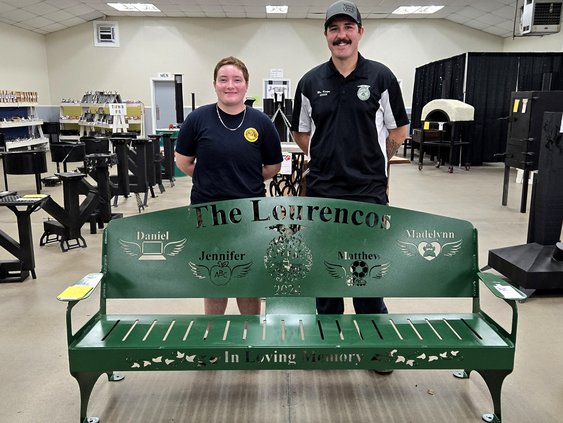When Modesto resident Dora Lomeli started to develop a cough last year, she thought it was just another cold. After months of sleepless nights and no relief, however, Lomeli found out her condition was much more fatal when she ended up in the emergency room, where she was diagnosed with pneumonia, H1N1 and Acute Respiratory Distress Syndrome. She was told that she would not survive.
“My boys flew home because I wasn’t supposed to survive,” said Lomeli. “But I did.”
The reason Lomeli almost lost her life last year? She never had the flu shot.
Lomeli was a guest speaker during Turlock resident Shivani Thakur’s presentation on Friday about common vaccination myths and misconceptions at the Turlock Chamber of Commerce. Thakur, who is also a senior in the International Baccalaureate Program at Modesto High School, hosted the presentation for community and business leaders as part of Advocation for Vaccination! — a program she founded to improve vaccination rates by encouraging vaccination and dispelling negative and incorrect information about vaccines.
During her presentation, Thakur debunked nine vaccine myths — one of which was the misconception that the measles, mumps and rubella (MMR) vaccine causes autism.
“Many large, well-designed studies have found no link between MMR vaccine and autism,” said Thakur.
Thakur said that although signs of autism usually become apparent around the same time that MMR is administered to children, which is around 12 months to 18 months of age, there has been no evidence of causality. She said that this myth started because of a 1998 study done by Andrew Wakefield that was based on 12 preselected children. The interpretations of the study were retracted six years later by 10 of the 13 authors, and the paper was retracted by the Lancelot following the ruling by the United Kingdom’s General Medical Council that the primary author’s conduct regarding his research was dishonest and irresponsible.
“Wakefield was subsequently removed from the UK Medical Register and is no longer licensed to practice medicine,” said Thakur. “Also in January of 2011, the British Medical Journal published a series of articles showing Wakefield’s work was not just bad science, but it was a deliberate fraud.”
Thakur also addressed the misconception that ingredients in vaccines are harmful by talking about the use of aluminum in some vaccines. She said that the metal is used as an ingredient to improve immune response.
“Aluminum is the most common metal found in Earth. Most of the aluminum taken into the body is quickly eliminated. It is in the air, in food and in our drinks,” said Thakur. “In fact, infants gets more aluminum through breast milk or formula than vaccines themselves.”
The myth that vaccines are not effective was also discussed by Thakur, who said that anti-vaccine websites often use a “straw man argument” by saying that experts claim that vaccines are 100 percent effective.
“Obviously no one really claims that vaccines are 100 percent effective just as any other drug or medical procedures always works,” said Thakur. “Most childhood vaccines work about 80 to 100 percent of the time and are very effective when properly administered and all doses are received according to the recommended schedule.”
Thakur said that what really sparked her interest in vaccinations was when she attended a Stanford graduation ceremony a few years ago. At the time, Bill and Melinda Gates delivered the commencement speech and spoke about their organization, the Immunization Action Coalition.
“I was really inspired by their work and what they’ve done to improve vaccine rates,” said Thakur. “I had also seen a lot in the news about outbreaks like measles and whooping cough, which I was really shocked to see because those are vaccine preventable diseases.”
Thakur started Advocation for Vaccination! to increase the awareness of vaccines in the local community. She has also published a book in conjunction with the Immunization Action Coalition to demonstrate the responsibility that parents are taking on by not vaccinating their children or themselves. The book is available in English and Spanish, and Thakur said that it will soon be translated into Hmong as well.
“I’ve been distributing them at pediatrician and doctor’s offices, as well as local businesses in Stanislaus County so that people in the community who want to know more about vaccines can take a look at them,” said Thakur.
As for Lomeli, she announced to the business and community leaders in attendance Friday that she got her very first flu shot in October and she is hoping to encourage others to do that same.
“Here I am telling you the story that I survived,” said Lomeli. “I encourage a lot of people now to get your flu shot because I wouldn’t want anybody to experience what I did.”
For more information, visit advocationforvaccination.org.









